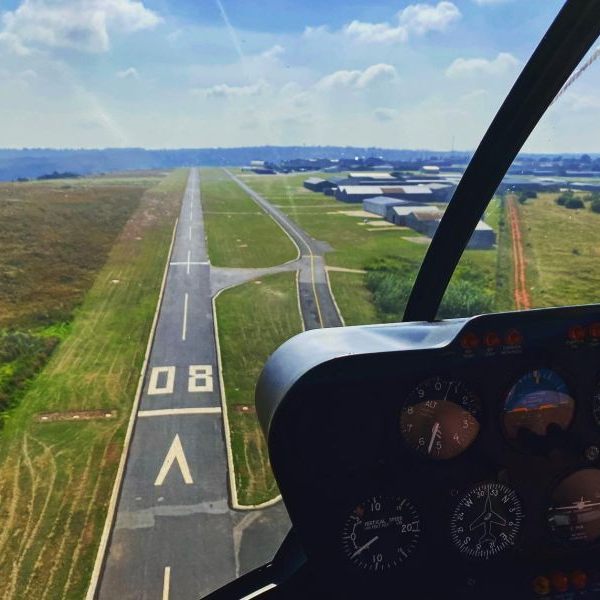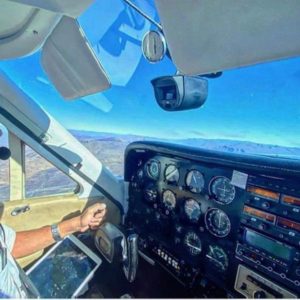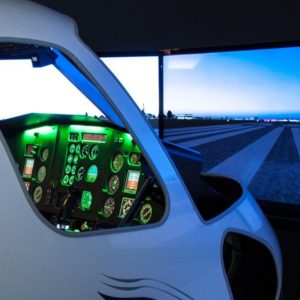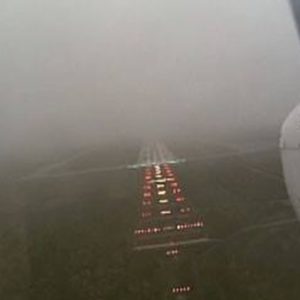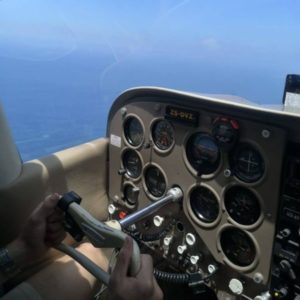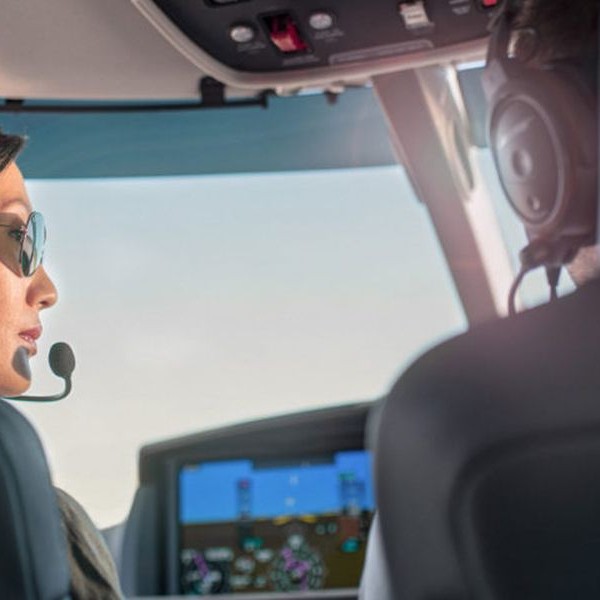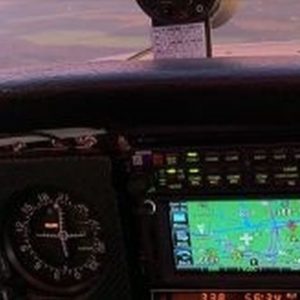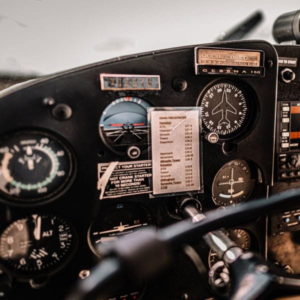No products in the cart.
Instrument Rating
Showing 1–16 of 18 results
Filters Sort results
Reset Apply
Flexible Hour Building Packages on R44 includes Ground School, Night rating option, Instructor rating option, Mountain flying option, Sling rating option, Coastal flying safari option, Cross country trips to Sun City, Big Game lodges, Gain Experience in various controlled airspaces. Last Updated: 18-01-2023 | ||
With an instrument rating, a pilot may fly in instrument conditions, instrument flight rules (ifr), weather below the minimums for visual flight rules (vfr). An instrument rating is not only for continuing one’s aviation education, but also in the unlikely event the unexpected does happen you will be prepared to handle additional flight conditions along your journey as a pilot. Furthermore your instrument rating improves your flying accuracy & technical abilities as a pilot. Last Updated: 28-07-2022 | ||
To be able to fly in cloud, or in any weather that does not allow a clear view of the ground & horizon at all times, requires the development of special skills. This is the instrument rating. If your aspirations involve professional flying then you will want to include the instrument rating as part of your flight training. Last Updated: 26-07-2022 | ||
This course is for pilots who already have a licence & wish to study for the UK Instrument Meteorological Rating Course IMC-IR(R). All of the pre-flight briefings for successful completion of the IMC-IR(R) course is included in this on-line course (our mantra is "learn on the ground, practice in the air"). You will also have all the necessary knowledge & techniques required to pass the IMC-IR(R) theoretical written exam. At the end of this course, you will have a thorough grounding… Last Updated: 08-03-2024 | Company / Seller: Location: England ⋅ Colchester ⋅ Europe ⋅ Essex ⋅ South East ⋅ UK | |
Instrument Flight Training (20 hours in the Cessna 152) based out of Krugersdorp, South Africa. Last Updated: 01-12-2022 | ||
The Competency Based Instrument Rating(IR) for aeroplanes is a modular flying training course designed to train PPL or CPL holders for the IR(A), taking into account prior instrument flight instruction and experience. Last Updated: 09-05-2023 | Company / Seller: Location: England ⋅ Oxford ⋅ Europe ⋅ Oxfordshire ⋅ South East ⋅ UK | |
15 hours dual instruction in a Cessna 152 Last Updated: 12-03-2024 | Company / Seller: Location: Nottingham ⋅ East Midlands ⋅ England ⋅ Europe ⋅ Nottinghamshire ⋅ UK | |
This course is ideal for students requiring additional training for their Night Rating and Instrument Rating. Last Updated: 12-03-2024 | Company / Seller: Location: Nottingham ⋅ East Midlands ⋅ England ⋅ Europe ⋅ Nottinghamshire ⋅ UK |
Instrument Rating Courses on AvPay
AvPay has a range of Instrument Rating Courses in the US, Europe, Australia, South Africa and throughout the world. Contact Approved Training Organisations directly on AvPay to compare prices through the Aviation Directories here: https://avpay.aero/directory/
AvPay is a global aviation marketplace that lets you browse a wide selection of Flight Training Courses. View all of our Flying Schools and discover other related Aviation Products & Services here: https://avpay.aero/marketplace/
Can’t find the Instrument Rating Course you’re looking for? Check-out the Aviation Directories to find an Aviation Company that offers the service you’re looking for: https://avpay.aero/directory/
AvPay: Connecting Pilots with Flight Training Organisations Worldwide!
An Instrument Rating (IR) qualifies a pilot to act as Pilot-In-Command (PIC) of an aircraft under Instrument Meteorological Conditions (IMC), which allows you to fly under Instrument Flight Rules (IFR) with a minimum decision height of 200 feet. Instrument Rating Courses can be taken for Aeroplanes, Helicopters and Airships. The course comprises of at least 10 hours instrument flying while under instruction, written exams and an airborne skills test. In order to qualify for an IR course, you need to already hold a PPL, CPL or ATPL and have completed at least 50 hours flying as PIC. Find Flight Training Organisations that offer IR Training on the AvPay Flying School Directory.
An instrument rating is an additional qualification that pilots can obtain beyond their basic pilot’s license. It allows pilots to fly under Instrument Flight Rules (IFR), which means they can operate aircraft solely by reference to instruments in conditions where visual flight is not possible or not recommended. The instrument rating is an endorsement or additional rating added to a pilot’s existing license. It enables pilots to operate aircraft in Instrument Meteorological Conditions (IMC) and navigate solely by referring to the flight instruments in the cockpit. To obtain an instrument rating, pilots typically undergo additional training focused on instrument flight procedures, navigation, communication, instrument interpretation, and the use of navigation aids and instrument approaches. The training includes both ground instruction and flight training, which covers topics such as instrument flight rules, instrument approaches, holding patterns, and in-flight navigation. Instrument Flight Rules (IFR) is a set of rules and procedures established by aviation authorities to ensure safe flight operations when visibility is limited, or conditions do not permit visual reference to the ground or other aircraft. Pilots flying under IFR must comply with specific regulations and follow prescribed procedures to maintain separation from other aircraft and navigate using instrument guidance. IFR flights require detailed flight planning that includes determining the route, filing an IFR flight plan with Air Traffic Control (ATC), considering weather conditions and airspace restrictions, and preparing an alternate plan in case of contingencies. Pilots under IFR rely on instrument approaches to land at their destination airports. These approaches provide precise guidance, usually through radio navigation aids or satellite-based systems, to safely transition from en route navigation to landing. Pilots flying under IFR must establish and maintain communication with ATC throughout their flight. ATC provides clearances, instructions, and guidance to ensure separation from other aircraft and to coordinate safe navigation and approach procedures. Rather than relying on visual cues, pilots flying under IFR use the aircraft’s instruments, such as attitude indicators, altimeters, airspeed indicators, navigation radios, and GPS systems, to maintain course, altitude, and attitude control. Air traffic control ensures separation between IFR aircraft through the use of radar and communication systems. They provide vectors, clearances, and instructions to maintain proper spacing between aircraft and avoid conflicts. Flying under IFR and maintaining instrument currency requires regular practice and proficiency. Pilots must demonstrate the necessary skills and knowledge during instrument proficiency checks and periodic assessments to maintain their instrument rating.





